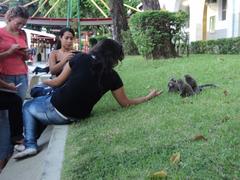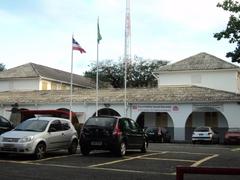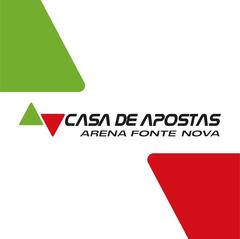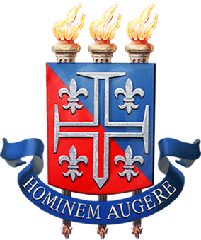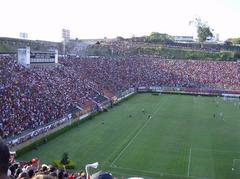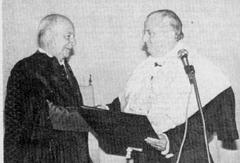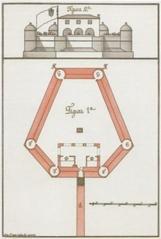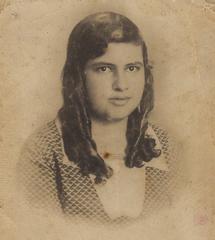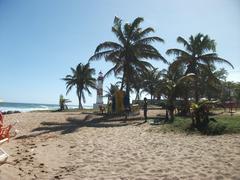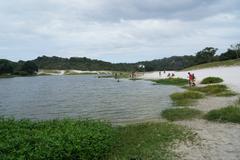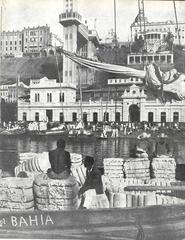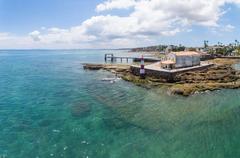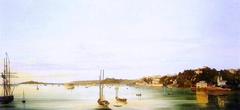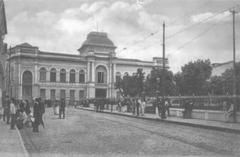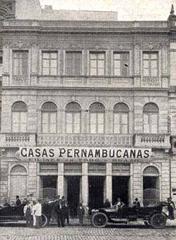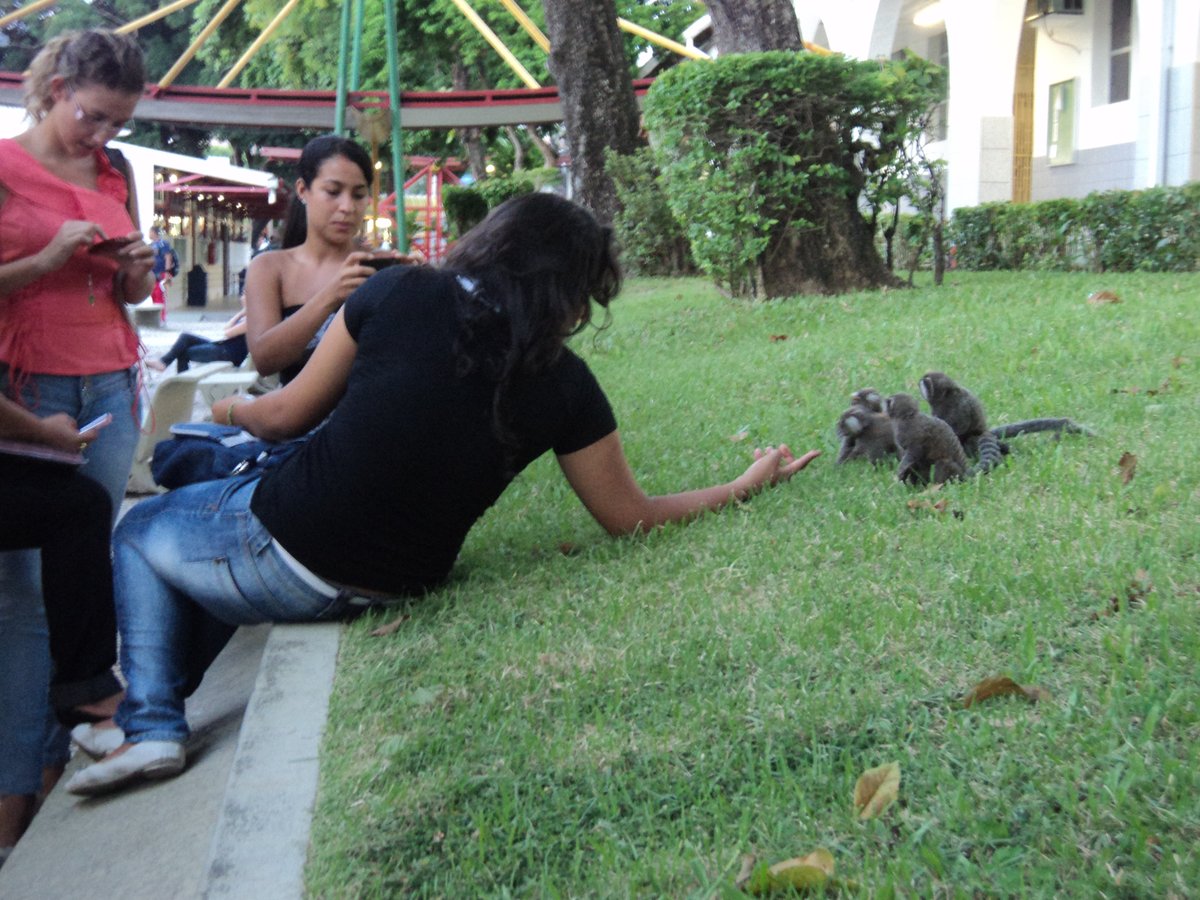
Catholic University of Salvador (UCSal) Visiting Hours, Tickets, and Historical Sites Guide
Date: 14/06/2025
Introduction
Nestled in the historic and culturally rich city of Salvador, Bahia, Brazil, the Catholic University of Salvador (Universidade Católica do Salvador, UCSal) is an esteemed educational institution with deep roots in the region’s history, faith, and vibrant Afro-Brazilian culture. Established in 1961 by the Catholic Archdiocese of Salvador, UCSal is not only a center for academic excellence but also a guardian of Salvador’s colonial and religious heritage. Its main campus, located in the Nazaré neighborhood within the 18th-century Convent of Lapa, provides an immersive experience in local history, notably the courageous legacy of Sister Joana Angélica.
UCSal offers a multifaceted visit—combining architectural splendor, cultural programming, community initiatives, and accessibility. This guide presents comprehensive details on visiting hours, ticketing, accessibility, and nearby attractions, ensuring you make the most of your time at UCSal and in Salvador. Whether you’re a traveler, student, or history enthusiast, this resource will help you navigate UCSal’s offerings and grasp its significance within the broader context of Salvador’s heritage.
For up-to-date information, official visitor services, and virtual experiences, consult UCSal’s website and leverage tools like the Audiala app to enhance your visit (Salvador da Bahia; Britannica - Salvador).
Table of Contents
- Introduction
- Historical Overview
- Visiting UCSal: Hours, Tickets, and Accessibility
- Nearby Attractions and Practical Travel Tips
- Visual and Interactive Experiences
- FAQs
- UCSal in Salvador’s Cultural Landscape
- Conclusion
- Related Resources and References
Historical Overview
Founding and Early Development
UCSal was founded in 1961 by the Catholic Archdiocese of Salvador in response to growing demands for higher education in the region (Britannica). As a private, non-profit institution, it has played a pivotal role in shaping higher education in northeastern Brazil (Wikiwand).
Campus and Architectural Heritage
The main campus in Nazaré is housed within the Convent of Lapa, an iconic structure dating back to 1744. This site is intimately linked to Sister Joana Angélica, whose martyrdom during the fight for Bahian independence symbolizes resilience and sacrifice. The campus location offers visitors a direct connection to colonial and religious history, surrounded by historic mansions, churches, and monuments (Salvador da Bahia).
Academic Growth and Significance
Over time, UCSal has grown into a leading private university in Bahia, offering a broad spectrum of undergraduate and postgraduate programs spanning humanities, social sciences, health sciences, engineering, law, and theology. The institution’s commitment to academic excellence and ethical formation is underscored by its Catholic values (Wikiwand).
Cultural and Social Impact
Positioned in a city celebrated for its Afro-Brazilian traditions and religious diversity, UCSal is an active participant in Salvador’s cultural life. It promotes dialogue between Catholicism and Afro-Brazilian faiths such as Candomblé and partners with local organizations to advance social justice, literacy, healthcare, and human rights (CNC Travel).
Visiting UCSal: Hours, Tickets, and Accessibility
Visiting Hours
- Main Campus (Convent of Lapa): Monday to Friday, 8:00 AM to 6:00 PM.
- Other Campuses (Federação and Pituaçu): Typically 8:00 AM to 9:00 PM.
Note: Hours may change during holidays or special events. Always check the official website before your visit.
Entry and Ticketing
- General Admission: Free for all visitors.
- Special Events/Exhibitions: Some may require advance registration or a nominal fee. Details are available via UCSal’s events calendar.
Guided Tours and Visitor Services
- Guided Tours: Available by request and provide in-depth exploration of the campus, convent, and UCSal’s academic and cultural facilities.
- Booking: Arrange via the university’s visitor services or international office.
- Visitor Support: Brochures and assistance are available, including information about the area’s history and UCSal’s cultural initiatives.
Accessibility
- Physical Access: Ramps and elevators throughout the campus.
- Special Assistance: Contact UCSal in advance to request tailored support.
Nearby Attractions and Practical Travel Tips
Key Nearby Historical Sites
- Pelourinho Historic District: UNESCO-listed, renowned for colonial architecture and vibrant street life (UNESCO World Heritage Listing for Pelourinho).
- São Francisco Church: Baroque masterpiece featuring lavish gilded interiors (I Heart Brazil - Things to Do in Salvador).
- Elevador Lacerda: Iconic public elevator with panoramic city and bay views.
- Museu Afro-Brasileiro: Dedicated to Afro-Brazilian heritage (Museu Afro-Brasileiro).
- Mercado Modelo: Bustling market for crafts and souvenirs.
Travel Tips
- Getting There: UCSal and attractions are accessible by public transit, taxi, or ride-sharing services.
- Footwear: Wear comfortable shoes for exploring historic neighborhoods.
- Safety: Exercise standard precautions, especially after dark and in crowded areas.
- Optimal Visiting Times: Arrive early on weekdays to avoid crowds and enjoy a more relaxed experience.
Visual and Interactive Experiences
- Virtual Tours: Explore the campus and Convent of Lapa online via panoramic views (UCSal Official Website).
- Photo Opportunities: Capture the convent’s baroque architecture, lush gardens, and bustling student life.
- Events: Attend art exhibitions, music performances, and religious festivities throughout the year.
Frequently Asked Questions (FAQ)
Q: What are UCSal’s visiting hours?
A: Monday to Friday, 8:00 AM to 6:00 PM at the main campus; other campuses may open until 9:00 PM.
Q: Is there an entry fee to visit UCSal?
A: No, entry is free. Some special events may have a fee.
Q: Are guided tours available?
A: Yes, arranged via visitor services or the international office.
Q: Is the campus accessible to visitors with disabilities?
A: Yes, including ramps, elevators, and accessible restrooms.
Q: Can I attend UCSal’s cultural events as a visitor?
A: Many events are open to the public; check the events calendar.
Q: Are photographs allowed?
A: Yes, for personal use. Professional photography may require permission.
UCSal in Salvador’s Cultural Landscape
UCSal is integral to Salvador’s educational and cultural scene, complementing institutions such as the Federal University of Bahia. Its blend of academic rigor, faith-based values, and community involvement makes it an exceptional destination for those seeking to understand Salvador’s identity (Britannica).
Conclusion
A visit to the Catholic University of Salvador is a journey into the heart of Bahia’s history, spirituality, and cultural vibrancy. Whether you are captivated by architecture, keen to engage with cultural events, or interested in Salvador’s academic landscape, UCSal offers an enriching, welcoming environment.
Prepare for your visit by checking the latest updates on UCSal’s website, downloading the Audiala app, and exploring Salvador’s unique blend of tradition and modernity. UCSal’s commitment to heritage, education, and inclusivity ensures a memorable experience for every visitor.
Additional Resources
- Guide to Salvador’s Historic Neighborhoods
- Top Cultural Events in Bahia
- Salvador Tourism Official Site
- UCSal Campi and Academic Programs
References
- UCSal Official Website
- Britannica - Salvador
- Salvador da Bahia - Stories of Salvador Neighborhoods: Nazaré
- UNESCO World Heritage Listing for Pelourinho
- I Heart Brazil - Things to Do in Salvador
- UCSal Campi and Academic Programs
- Salvador Tourism Official Site
- CNC Travel - Salvador Afro-Brazilian Culture
- Museu Afro-Brasileiro
